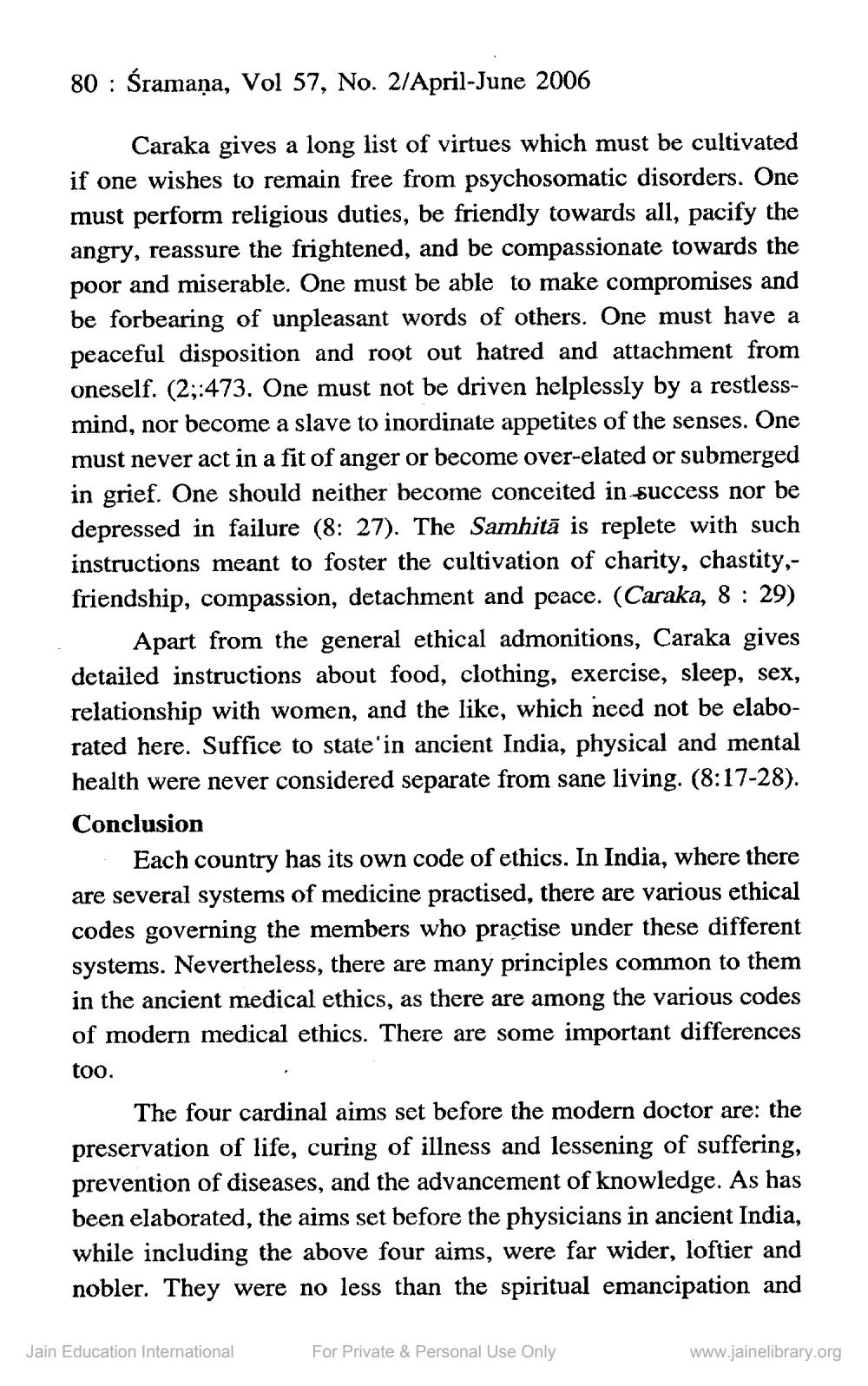________________
80 : Śramaņa, Vol 57, No. 2/April-June 2006
Caraka gives a long list of virtues which must be cultivated if one wishes to remain free from psychosomatic disorders. One must perform religious duties, be friendly towards all, pacify the angry, reassure the frightened, and be compassionate towards the poor and miserable. One must be able to make compromises and be forbearing of unpleasant words of others. One must have a peaceful disposition and root out hatred and attachment from oneself. (2;:473. One must not be driven helplessly by a restlessmind, nor become a slave to inordinate appetites of the senses. One must never act in a fit of anger or become over-elated or submerged in grief. One should neither become conceited in success nor be depressed in failure (8: 27). The Samhitā is replete with such instructions meant to foster the cultivation of charity, chastity,friendship, compassion, detachment and peace. (Caraka, 8 : 29)
Apart from the general ethical admonitions, Caraka gives detailed instructions about food, clothing, exercise, sleep, sex, relationship with women, and the like, which need not be elaborated here. Suffice to state in ancient India, physical and mental health were never considered separate from sane living. (8:17-28). Conclusion
Each country has its own code of ethics. In India, where there are several systems of medicine practised, there are various ethical codes governing the members who practise under these different systems. Nevertheless, there are many principles common to them in the ancient medical ethics, as there are among the various codes of modern medical ethics. There are some important differences too.
The four cardinal aims set before the modern doctor are: the preservation of life, curing of illness and lessening of suffering, prevention of diseases, and the advancement of knowledge. As has been elaborated, the aims set before the physicians in ancient India, while including the above four aims, were far wider, loftier and nobler. They were no less than the spiritual emancipation and
Jain Education International
For Private & Personal Use Only
www.jainelibrary.org




